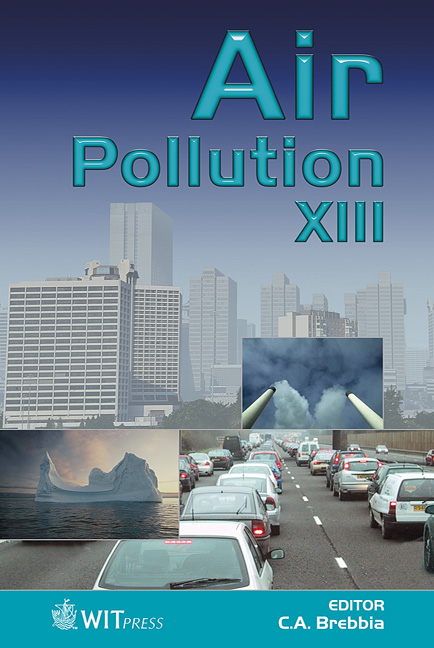Clean Technologies Center At The University Of New Orleans
Price
Free (open access)
Transaction
Volume
82
Pages
7
Published
2005
Size
1,854 kb
Paper DOI
10.2495/AIR050221
Copyright
WIT Press
Author(s)
B. Kura, S. Sangameswaran & K. Kambham
Abstract
Under a clean technologies research initiative at the University of New Orleans (UNO), an advanced air quality monitoring, analysis, modeling, and management system has recently been established. This initiative included the design and construction of an Emissions Test Facility along with the necessary instrumentation for source testing, analysis of metals/organics, and particle sizing. The initial objective of this initiative is to assist the maritime industry and then follow up to assist other industry sectors such as power generation, chemical manufacturing, and petroleum refining. Maritime industry has several processes such as blasting, painting, welding, metal cutting, and others which are important with respect to their emission potential of airborne pollutants. Emission factors are not available for all processes and process conditions. USEPA has published emission factors for certain processes but this data has low quality ratings. UNO is currently using the clean technologies center to promote generation of emission factor data and identification of clean technologies (materials, processes, and process conditions) with the help of maritime industry and regulatory agencies. In addition to identifying low emission clean technologies, the UNO research approach emphasizes mathematical modeling for source emission potential and atmospheric dispersion for ambient air quality prediction. Performance parameters such as the productivity, raw material, and natural resources consumption are important in the selection of clean technologies as they influence energy consumption and costs. The continuum approach to air pollution control involves development of decision support systems and tools for life cycle costing, life cycle assessment, and inhalation-induced health risk evaluation. UNO’s clean technologies center will assist in designing various production alternatives to achieve high productivity and lower consumption of natural resources as well as emissions, thus minimizing costs and reducing the environmental burden. This paper presents UNO’s new research initiative that will result in developing environmentally friendly technologies through optimized process conditions. Keywords: clean technologies, source monitoring, emission characterization, predictive mathematical models, atmospheric dispersion modelling, ambient air quality monitoring, and decision support systems.
Keywords
clean technologies, source monitoring, emission characterization, predictive mathematical models, atmospheric dispersion modelling, ambient air quality monitoring, and decision support systems.





